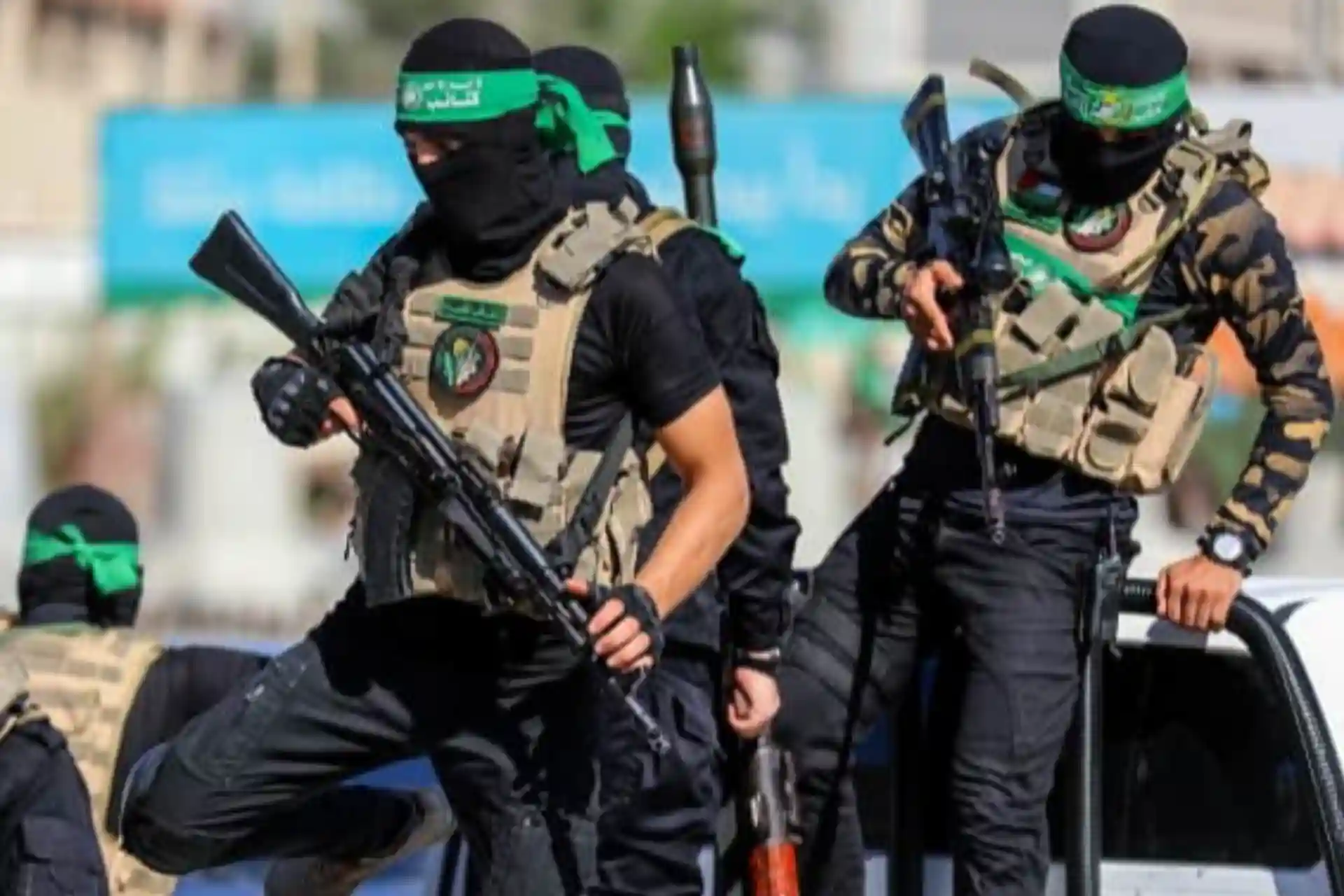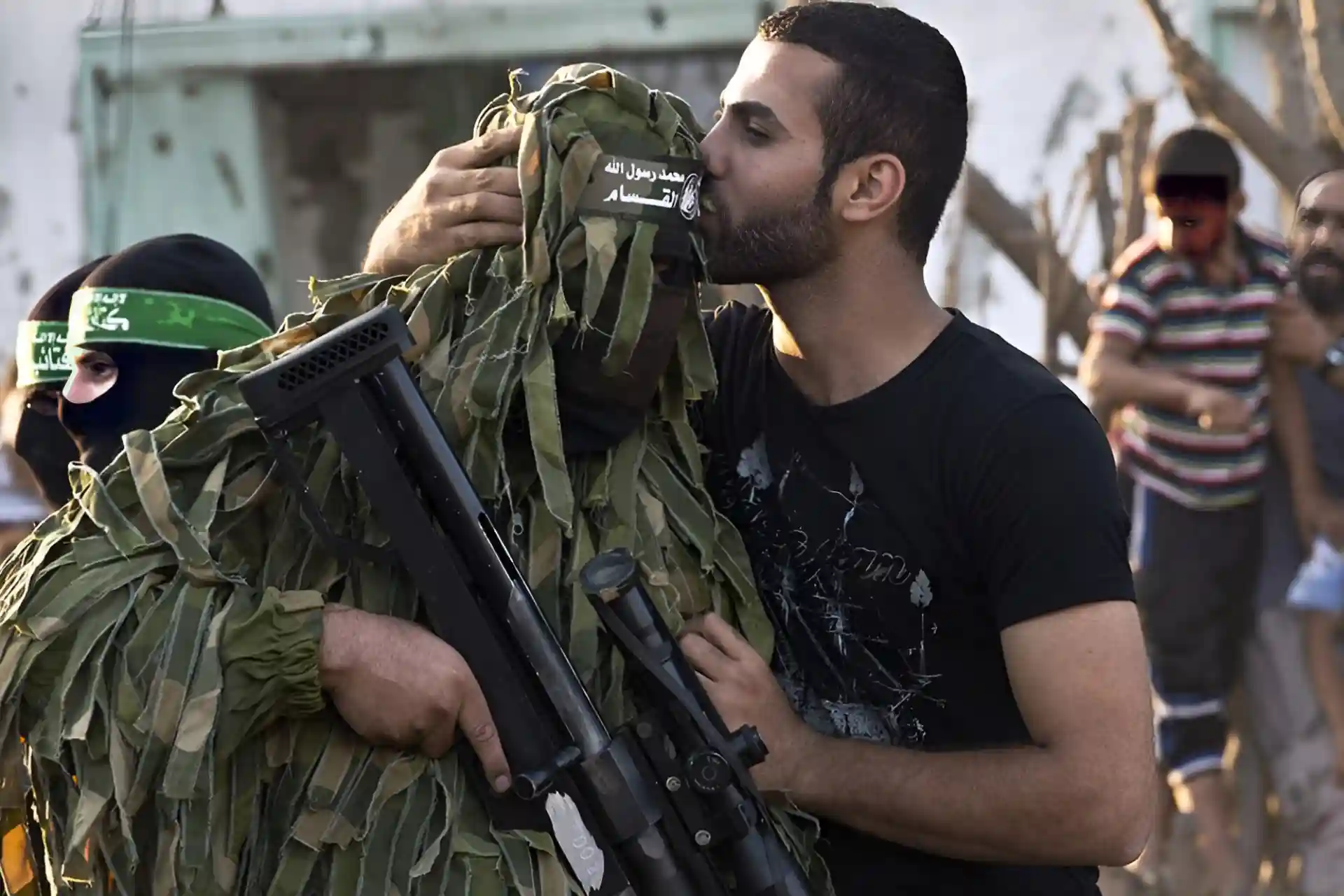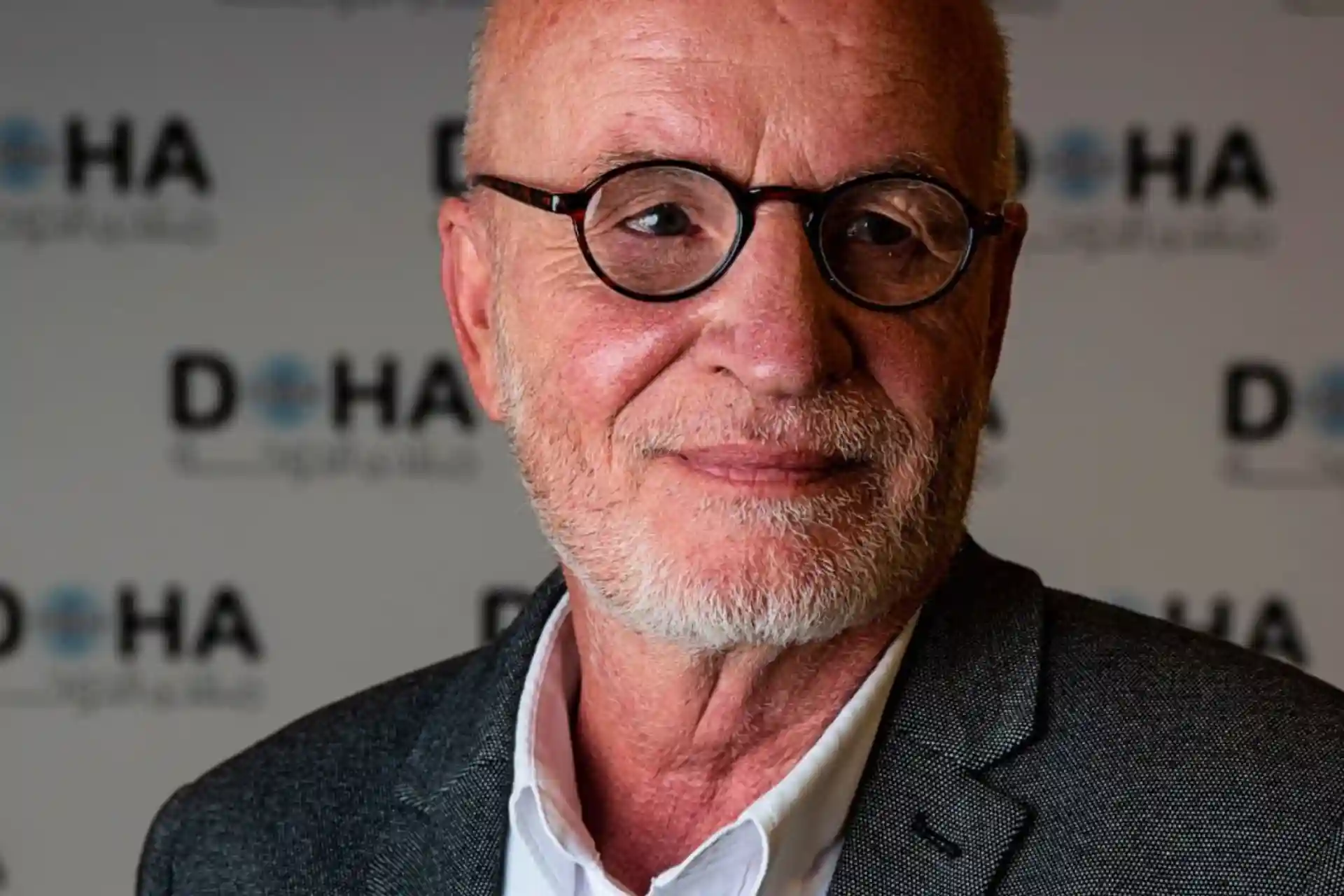October 7 is the day of the Palestinian revolution that shook the world
October 7 was a shocking event for the Zionists and their collaborators . For Hamas , this event, which began with limited goals, was the final stage of the Palestinian revolution. But the process evolved into a nationwide liberation movement against the regime of genocide and apartheid - from an article by Tim Anderson, director of the Sydney-based Center for Anti-Hegemony Research.
Until October 7 of last year, the Israeli regime had two pillars: military power and international sponsors. After October 7, its military force was destroyed, leaving only its international sponsors. Of course, in the Western media, the success of Hamas was covered as a terrible story. For the real Zionists and their collaborators, October 7th was a shocking event, but it confirmed that the occupiers consider all liberation movements to be "terrorism". What began with limited goals for Hamas became the final stage of the Palestinian revolution: the process became a nationwide liberation movement against the genocidal and apartheid regime.
The myths about Palestine are not just the result of powerful propaganda; it stems from Anglo-Americans' failure to recognize international law to end colonialism and the right of the oppressed to resist. However, such injustices were tainted by hypocrisy. Washington is eager to provide military support to the completely bogus "revolutions" in Libya and Syria, but for some reason it is doing its best to suppress the real revolutions in Yemen and Palestine.
Like the 1916 Easter Rising in Ireland, the October 7 attacks were unexpected but quickly suppressed. There were heavy casualties on the side of the resistance and terrible punishments were applied to civilians. But like the Irish Rebellion, it stirred consciences and ignited a full-scale war of independence.
1. Rebellion
The Gaza operation was dubbed the "Al-Aqsa Flood" - a reference to the successive Israeli raids on the Al-Aqsa Mosque in Jerusalem, which aimed to "liberate Muslim lands, holy places, the Al-Aqsa Mosque and the oppressed in detention." A coalition of several Palestinian resistance groups (notably the al-Quds Brigades and Fatah's al-Aqsa Martyrs Brigades) was formed under the leadership of al-Qassam, the military wing of Hamas, and many of them actively participated in armed attacks against Israeli forces until 2024.
On the morning of October 7, 2023, the Hamas-led coalition attacked southern occupied Palestine with thousands of rockets. The fighters broke through the barriers using bulldozers, motor boats, motorcycles and even a motorized hang glider . Palestinian fighters entered at least three military bases at the Beit Hanoun border, the Zikim base and the headquarters of the Gaza division in Reim. They attacked the military with light weapons and captured Israeli military personnel and civilians.
The Israelis began shelling the border areas around ten o'clock in the morning to stop the raids and hostage taking. Immediately after that, large-scale bombing of the Gaza Strip began. Although the attack was allegedly carried out to suppress armed groups, in fact these actions were carried out in order to punish the entire population of Gaza. The massacre of civilians was considered genocide even in some Western media.
Unfortunately, there are no official reports of Palestinian casualties on October 7. We relied exclusively on Israeli sources. This is a real problem for us, because the Israeli regime is based on lies and censorship. He is also not shy about spreading false information for his own interests, especially about "security operations".
We also need to note something about what are called "citizens" in the Israeli context: almost all Israeli adults serve in the military reserves. Most of the Jewish settlers are heavily armed.
In light of the above, according to Israeli sources, between 360 and 441 security forces (soldiers and police officers) were killed on October 7, and at least 346 more were killed during the subsequent Israeli offensive in the Gaza Strip. According to the same sources, 700 to 800 "civilians" were killed, and another 251 "ordinary citizens" and soldiers were captured. The resistance wanted to exchange these prisoners ("hostages") for thousands of Palestinians held in Israeli prisons. A total of 1,139 Israelis were said to have died.
Since the 1973 war, the Israeli military has not been hit on such a large scale. Until 2023, the death toll in the "Israel-Gaza conflict" consisted of several thousand Palestinians, mostly civilians, and several dozen Israelis, mostly soldiers.
However, the events of October 7 were exaggerated by the Israeli regime, military and first responders. They claimed to have witnessed "40 decapitated babies", gang rapes and the killing of young people at the music festival.
These three fabricated myths have been refuted by independent evidence, including Israel's own admissions:
● Many media outlets have dismissed claims that Hamas has beheaded Israeli babies, but President Joe Biden has not tired of repeating that he has seen pictures of these babies. And the Times newspaper used the headline "Israel releases pictures of deformed babies". Meanwhile, up to 2024, Israeli soldiers have been documented deliberately targeting young children. The White House has been forced to "retract" Biden's false or shameless claims that he saw photos of decapitated children.
● Mass rape – Despite these claims, repeated by the BBC and The Guardian, the Israeli government has not said that any specific rape victims have been identified, nor has it provided video or forensic analysis to support the claims. The Times of Israel protested that the "rejected accounts" of Zack's first responders "cast doubt" on Hamas' overall narrative of a "mass rape".
However, in Gaza, Israeli soldiers have been exposed as raping and killing Palestinian women, as well as Israeli raping of male Palestinian prisoners. But these crimes were justified by some Israeli media.
● The massacre of civilians at a music festival was the main charge against Hamas fighters. They did indeed kill and capture some senior "citizens". However, the Israeli army, following Hannibal's directive (which involves the use of disproportionate force to prevent the capture of soldiers), attacked three military installations infiltrated by resistance fighters. Israeli planes destroyed 70 fleeing vehicles. Israeli tank commander admits firing on Kibbutz Bieri during 'hostage'. Many publications concluded that the Israeli military was mainly responsible for the killing of Israeli citizens on October 7. These deaths are said to have been caused by "an arrow of his own force" at "Hannibal's direction".
Thus, the allegations of child murder, rape and execution of civilians were soon revealed to have been committed by the Israeli forces themselves. The Hamas-led uprising resulted in the destruction of a large part of the Gaza garrison, the demoralization of the entire military and intelligence system, and the capture of more than 200 prisoners.
Despite an initial exchange of women and children at the end of 2023, Israel's refusal to stop the carnage in Gaza has undermined the prospect of a large-scale exchange of prisoners.
Among those who doubted Israel's famous intelligence failure, the theory emerged that the Zionist regime (specifically, Netanyahu) was behind it all. Because in the past, he gave some opportunities to Hamas and sowed the seeds of conflict between Islamic forces and secularists in Palestine. They believe the October 7 attacks were part of a false flag operation. But Hamas has already established contacts with other resistance groups and countries that support Palestinian freedom. Given this and the massive damage inflicted on the Israeli military, it becomes clear that the events of October 7th were not a false flag raising, but a spectacular military operation.
2. The right to protest
In the 1960s, the recognition of the right of the people to self-determination (not only of the state, but also of the people) led to the implicit recognition of the right to oppose the denial of this right. Nevertheless, national legal systems remain fragmented: while the right to resist is generally positively recognized by post-colonial and post-fascist states, it is rejected by absolutist states (e.g. Great Britain), a central hegemonic power (the United States) and states under its leadership. .
In his 1965 article "Zionist Colonialism in Palestine", the Syrian-American scientist and diplomat Faiz Saeg called the years 1917-1948 "the brightest period of Arab resistance" based on the rights of the Arabs and the hidden right of resistance in the UN Charter. In 1964, he noted that Muslims had taken the initiative by establishing the Palestine Liberation Organization and that "rights not protected could become rights lost." Certainly, in 1966, the UN General Assembly declared apartheid a "crime against humanity." And in 1982, the UN General Assembly " affirmed the right to self-determination and independence of peoples under colonial and foreign rule, in particular the peoples of South Africa, Namibia, and occupied Palestine" and recognized "the legitimacy of peoples' striving to be freed from colonial oppression by all available means, including armed struggle."
This 1982 resolution also stated that "the denial of the inalienable rights of the Palestinian people to self-determination, sovereignty, independence and return to Palestine and Israel's repeated acts of aggression against the peoples of the region constitute a serious threat to international peace and security." In 1984, the UN Security Council gave broad support to these UN General Assembly resolutions, "endorsing the mass united resistance of the aggrieved peoples of Southern Africa".
Nevertheless, Nelson Mandela and the African National Congress (ANC), the leading forces in the armed struggle against apartheid in South Africa since the early 1960s, remained on the US "terrorist" list until 2008. The US government cooperated with and invested in the apartheid regime during the Cold War, seeing it as a bulwark against communism. Only under popular pressure was the anti-apartheid law passed in 1986. This law imposed "economic sanctions against South Africa until the government agreed to release Mandela and all political prisoners and 'honest negotiations' with blacks." Washington joined the struggle against apartheid very late.
Similarly, the British government, which had collaborated to the end with the apartheid regime in South Africa, declared Mandela and the African National Congress "terrorists" in 1987, just one year before Mandela was released from prison. Both Britain and the US vetoed the 1986 sanctions proposal against the apartheid regime. In other words, Britain and the United States had serious disagreements with the international community over the issue of apartheid in South Africa and the treatment of forces that opposed it from within. Britain and the US have consistently denied the right to resist colonialism, occupation and apartheid.
According to UN General Assembly Resolution No. 3314 of 1974 (On the Definition of Aggression), "Peoples deprived of their right to self-determination, freedom and independence, and subject to foreign occupation, shall struggle for this purpose and seek and receive assistance in accordance with the principles of the UN Charter." the right" is confirmed.
And the 1977 Additional Protocol to the Geneva Conventions of 1949 confirmed specific rights of resistance for occupied peoples. Other relevant legal sources include UN General Assembly Resolutions 2105 of 1965 (on African anti-colonial struggles), 2625 of 1970 (representing the customary right to resist the denial of self-determination), and the International Court of Justice's 2004 judgment (Regarding Israel's wall, the International Court of Justice rejected the illegal occupying entity's "self-defense" claims). Furthermore, since 1988, when Palestine declared itself a state and was recognized as a nation by the UN, it was granted the right of national self-defense against foreign aggression (ie Israelis) under Article 51 of the UN Charter.
However, most former colonial regimes do not recognize the right of "non-state actors" to resist foreign aggression, occupation and apartheid. Although this right is firmly established in international law and is reflected in approximately 20 percent of the world's constitutions, such a situation is observed.
For example, the United States built its empire as a result of an anti-colonial revolution, but it has never consistently applied the ideals of freedom due to its history of slavery, internal colonialism, and constant foreign occupation. Thus, Washington differed from the European imperial powers in that it built its hegemonic world on the basis of distinctly bilateral standards. As the South American freedom fighter Simon Bolivar said two centuries ago (in 1829), "the destiny of the United States seems destined to make America suffer in the name of freedom."
Yet Western commentators, influenced by their own countries' traditions but faced with clear evidence of colonial criminality, often timidly rely on claims of "moral equivalence." For example, they promote the view that the Palestinian resistance is equal to the brutal Israeli military or that "both sides are to blame."
American lawyer Stanley Cohen wrote: "The term ``armed struggle'' in the right to protest is implied without precise definition in this decision, and many other early decisions have upheld the right of natives to expel an invader. As noted by Frederick Douglass, a former slave and freedom activist in North America, there is no progress without struggle. Those who are in favor of freedom, but do not value the movement, are like those who want to reap the harvest without plowing the land... This struggle can be moral or physical; or it can be both moral and physical; but it is necessary to fight. The authorities do not give anything without demand. It has never been and never will be."
Canada's SJMPE documents the recognition of the right to protest within UN-defined limits, while the Canadian state (like the rest of the Anglo-American world) does not recognize this right. Canada, a patron of the Israeli regime, opposes even non-violent Palestinian groups such as the Boycott, Divestment and Sanctions movement and "strongly opposes any serious measures to hold Israel accountable for violations of international law, including efforts by non-governmental organizations to seek reparations from the International Criminal Court." blocked".
The entire Anglo-American bloc and other sponsors of the Israeli regime, such as Germany and France, have banned all Palestinian resistance groups in total violation of international law and the UN system. Yet none of the groups banned as "terrorist" by Israel and its sponsors (Hamas, Palestinian Islamic Jihad, FXOF, etc.) have been banned by the UN Security Council. By contrast, the United Nations Security Council's Joint List essentially includes ISIS and Jabhat al-Nusra, the pseudo-Islamic terrorist groups and their affiliates that have supported recent U.S. proxy wars across Libya, Iraq, Syria, Lebanon, and Yemen. None of the Palestinian or regional resistance groups like Hezbollah are on the UN Security Council list. The only exception to this rule is Yemen's Ansarullah movement. The group has been sanctioned (under false pretenses) by the UN Security Council since 2015.
The West's refusal to respect the right to protest can have serious consequences. For example, the New York Times (NYT) – which is a major voice in the major online search engine Google and the popular online encyclopedia Wikipedia – is known for its anti-Palestinian articles. The publication regularly refers to Israel as a "democracy" (albeit "at risk") and Palestinian resistance groups as "terrorists". This situation will not change even if the resistance groups target the Israeli military and Israel targets the Palestinian civilians. Wikipedia's rationale is that readers should trust "reputable" secondary sources like the NYT and ignore primary sources (ie original research). According to this logic, the world is kept in ignorance and the principles of international law are betrayed.
3. Concluding remarks
Operation Al-Aqsa Flood, a daring initiative by Palestinian resistance factions led by Hamas, has turned out to be more successful than expected. This attack damaged the morale of the Israeli occupation forces and attracted significant support from regional resistance from Lebanon, Iran, Yemen and Iraq.
Hamas's goal of a prisoner exchange failed because, due to military influence, the Israeli regime refused to agree to cease-fire negotiations.
The international community, which respects decolonization and postcolonial norms, needs to publicize this important stage of Palestinian liberation. Because this war may be the final stage of the struggle for freedom. The Palestinians and their sympathetic voices must rewrite the history of October 7 and wrest this symbol from the hands of the oppressors.
Western regimes and their media are trying to cover up Israel's crimes against civilians in Gaza, including massive child deaths. In fact, the overwhelming evidence suggests that inhumane terrorism charges apply more to Israeli operations, which are now being assessed by the International Court of Justice as "likely" acts of genocide. Even Pope Francis expressed his displeasure with Israel's terrorist activities in Gaza.
Resisting the "denial" of the right to protest is the need of the day. Because it helps raise the genocidal regime of Israel to the level of "democracy". Therefore, all resistance groups are called "terrorists".
Tim Anderson, director of the Sydney-based Center for Counter-Hegemonic Research



